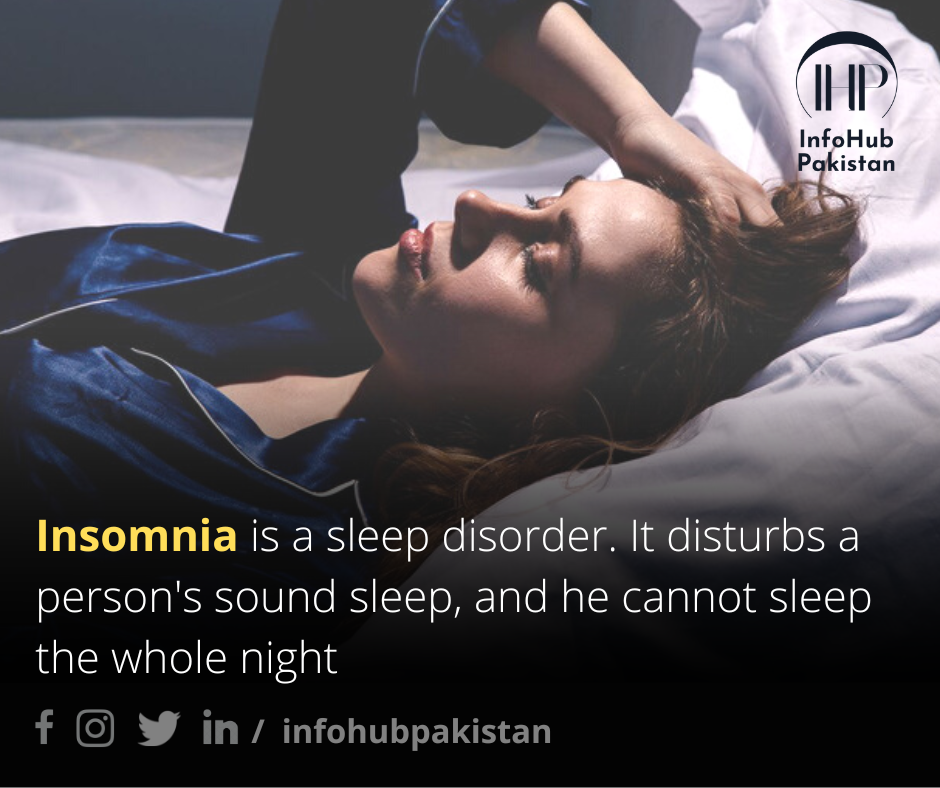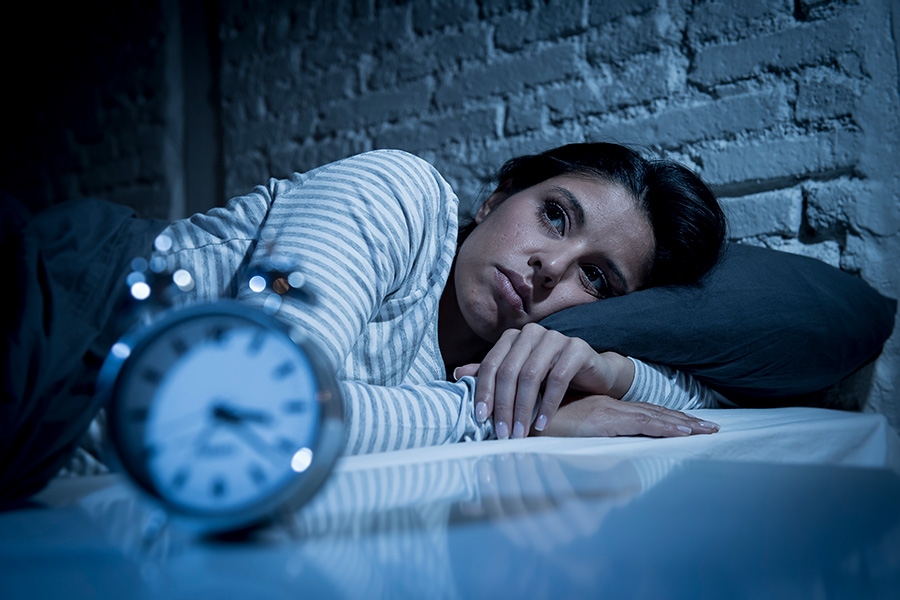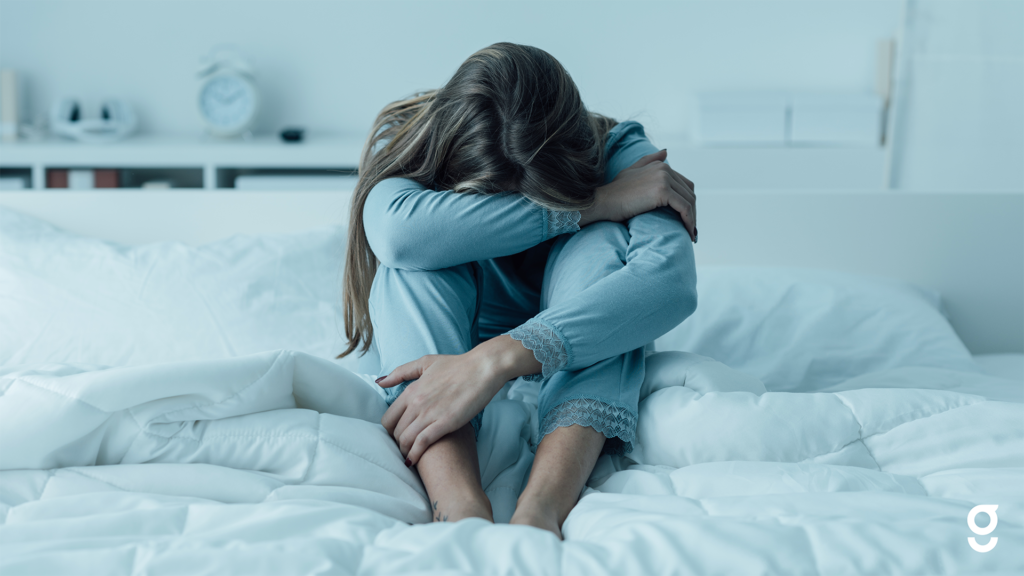
What is the reason for insomnia (sleeplessness)? What are the Causes of Insomnia
Insomnia Meaning
Insomnia is a sleep disorder. It disturbs a person’s sound sleep, and he cannot sleep the whole night. Insomnia makes it difficult for a person to fall asleep or stay asleep. Once sleep is disrupted, a person is not able to fall back asleep easily. Insomnia also makes a person wake up early. Due to sleepless nights, a person feels very tired during the day. Insomnia makes a person weak. Let us give you more information about insomnia.
What is insomnia?
Insomnia is a sleep disorder. It affects millions of people worldwide. Insomnia makes it difficult for a person to fall asleep or stay asleep at night. Waking up too early from sleep and the inability to fall back asleep after a disturbed sleep are also symptoms of insomnia.
Insomnia can have a very bad effect on a person’s health. A person suffering from insomnia is at increased risk of mental and physical illness as well as daytime sleepiness and fatigue. Insomnia also brings significant changes in the personality of the person. Sleeplessness makes a person irritable, anxious and tense.
What are the causes of insomnia?

- One of the major causes of insomnia is stress. There are many problems in a person’s life that can cause insomnia. Causes of insomnia are-
- Financial condition of the family, stress of studies and work for students, exhaustion, feeling worried about health, shock of death of a loved one, divorce, accident etc. can cause stress which can lead to insomnia.
- Patterns of sleep deprivation, such as using a mobile phone after eating and just before sleeping, sleeping in a chair instead of a bed, working on a bed instead of a chair, doing strenuous work before sleeping, are all causes of insomnia .
- Mental illness can cause insomnia.
- Insomnia can occur in people taking blood pressure and asthma medications.
- Insomnia is triggered due to change in work schedule like frequent work shifts, traveling to different regions etc.
- Chronic illness can cause insomnia.
- Lack of exercise can also cause insomnia.
- Excessive eating in the evening or just before bedtime can lead to insomnia.
- Insomnia can be caused by the consumption of alcohol, caffeine or nicotine.
What are the risk factors for insomnia?
There are some risk factors for insomnia. The presence of these risk factors can increase the chances of insomnia. Risk factors include.
- Age 60. more than.
- female gender.
- Current mental health status.
- Current physical health status.
- Improper work or daily routine schedule.
- Stress for many reasons.
What are the types of insomnia?
Insomnia can be of the following types.
- Short- term or acute insomnia – This type of insomnia is caused by a traumatic or stressful event, and lasts from a few days to weeks.
- Long-term or chronic insomnia – Underlying medical disorders, consumption of certain medications are some of the reasons that can lead to chronic insomnia. This type of insomnia occurs at least 3 times a week and for more than 3 months.
- Primary insomnia – When insomnia or sleep disorders are not related to any other medical disorder, this type of insomnia is called primary insomnia.
- secondary insomnia – when health conditions such as asthma, depression, cancer, heartburn, arthritis; use of certain drugs; Excessive consumption of alcohol leads to sleep disturbance, this type of insomnia is known as secondary insomnia.
- Paradoxical insomnia – a condition in which a person overestimates the amount of time he has been asleep and feels that he has slept for much less time than he actually did.
- Sleep-onset insomnia – When a person has trouble falling asleep, it is known as sleep-onset insomnia.
- Sleep-maintenance insomnia – When someone has problems falling asleep throughout the night or has a habit of waking up too early, the condition is known as sleep-maintenance insomnia.
- Mixed insomnia – When a person has trouble falling asleep and has trouble staying asleep throughout the night, the condition is called mixed insomnia.
What are the symptoms of insomnia?
There are various symptoms of insomnia.
- Trouble sleeping at night
- Worrying about something when trying to sleep at night.
- Not being able to focus on a particular task.
- Staying awake at night
- Get up early in the morning.
- Drowsiness and tiredness throughout the day.
- Loss of memory.
- irritability.
- Inability to socialize much with people.
- Increasing number of mistakes or accidents in daily life.
- Trouble paying attention or remembering things.
- Not being satisfied with the night’s sleep the next morning.
What are the treatments for insomnia?
To treat insomnia, doctors first suggest changes in bedtime and daily habits that can help in getting proper sleep.
- Self-care should be the number one step in treating insomnia.
- Avoid or limit your intake of alcohol, caffeine or nicotine.
- Doctors use cognitive behavioral therapy for some insomnia patients. This therapy is done in two ways.
- 1. Cognitive Therapy: This therapy teaches to identify and change negative thoughts and reduce stress which leads to insomnia and sleep disturbances.
- 2. Behavioral therapy: This type of therapy helps one break some of the bad habits and behaviors that keep one awake at night, and replace them with behaviors that induce better sleep.
- In some severe patients with insomnia, doctors recommend some sedatives or sleep medications such as eszopiclone lunesta, ramelteon-roserem, etc., or some antihistamines or antidepressants.
How to stop insomnia?

- One should wake up at the right time and sleep.
- Do not use lights in the bedroom; Try sleeping in the dark.
- Do not use your mobile or laptop before sleeping to avoid insomnia.
- Keep the bedroom clean and tidy.
- Always have your meal two hours before sleeping.
- Reading or listening to soft music before bed can help you sleep better.
- Medicines may be required in some severe cases, so take them with caution only on doctor’s prescription.
- If you have a habit of smoking then change your habit immediately.
- Insomnia can be stopped with the help of psychologists.
What are the complications of insomnia?
It is important for our physical and mental health that we get enough sleep every day. Insomnia and other sleep disturbances can lead to the following complications.
- Health diseases and conditions such as obesity, depression, diabetes and high blood pressure.
- Risk of falling, especially in old age.
- Trouble concentrating on day-to-day activities.
- Slowing down reaction time which can lead to accidents and injury.
- Irritability and nervousness.
- weight gain.
Frequently asked questions (FAQs) on Insomnia
Is insomnia a common condition?
Insomnia and other sleep disorders are very common in adults. About 33% to 50% of the adult population has some form of insomnia symptoms, and about 10% to 15% of the adult population is known to have chronic insomnia.
How many hours of sleep do I need in a day?
Most adults need about seven to nine hours of sleep a night. However, it varies from person to person. The sound quality of sleep matters as much as the quantity of sleep required.
When should a person suffering from insomnia call their doctor?
A. If the person with the sleep disorder experiences extreme fatigue, irritability, depression, or anxiety; or has difficulty concentrating on simple day-to-day activities; or sleep-related disorders, he should immediately contact a doctor.








